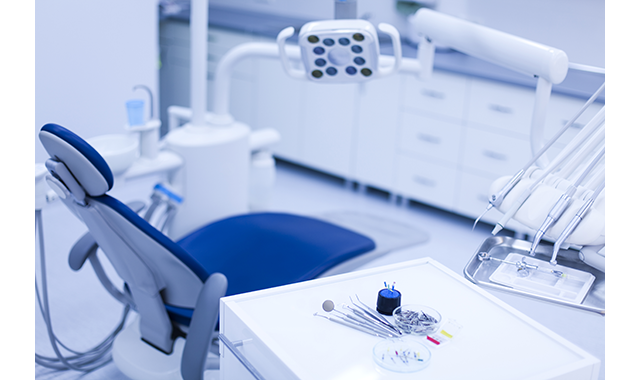Advice on acquiring practices
Acquiring practices that are low gross revenue/ start-ups or high grossing-which makes the most sense and why?

Acquiring practices that are low gross revenue/ start-ups or high grossing-which makes the most sense and why?
Let’s analyze the following scenarios-acquiring a practice that is low gross revenue; or a practice that’s a start-up or high grossing. Which of these scenarios gives the dental practice buyer the best chance for success over the short and long term?
Some will look at a low grossing practice and think that it would be easy to increase the revenue. Methods to do so may be include increasing the marketing budget, offering more service and higher-end dentistry, or by increasing the hours of the practice. It’s really important to understand why the practice has had a low gross revenue output over the years.
In determining whether this is the best opportunity for probably the lowest initial cost, it is extremely important to get a dental practice valuation. Analyzing the revenue trends, employment status of the staff regarding compensation and turn over, and local competition will give the potential buyer an opportunity to learn about the practice.
The geographic area in which the practice is located will allow the acquiring dentist to decide if the area is a good one for increasing the gross and net of the dental practice. If marketing dollars and advertising charges have been relatively low over the years, they may be good indicators that spending money on items such as these may revitalize the practice.
If there has been poor service and high personnel turnover, that is bad sign but one that may be over come with proper training. A good relationship builder can do wonders for the practice if this is one of the reasons for a lack of consistency with the employees. With happier employees comes more profitable hours without complaint by them, which also means more revenue to the practice on a regular basis. Acquiring a low gross revenue practice takes time to energize and money to assist with overcoming the reputation and morale problems associated with the former employees who have been retained in the short term.
The acquiring dentist who is trying to increase the patient flow must be patient themselves in order to give it enough time for the results to happen and for success to come. Staff members will be weeded out as to who fits with the new employer and who wants the progress and morale boosting that should come with a new owner.
The start-up practice
Those dentists who feel that transitioning into a practice is not what they want to do may opt for the start-up practice with the opportunity to design the facility as they wish. These dentists may like the excitement of a start up where there are no patients when the doors are first opened and building the practice is the paramount goal for the entrepreneurial type. He or she may want to be totally involved with the input of the operating procedures, personnel manual, and the administrative side of the practice. Of course, the hiring of employees, clinical decisions, and flow of the office are all resting on the shoulders of this dentist. The upside is that there are no employees retained from an acquired practice with accumulated bad habits from the selling dentist. There are no guidelines with patients about fee schedules, timeliness of payments, or appointments and follow up reminders about them and the appearance of the patients.
Continue reading on the next page...
The ability to borrow to fit out the office should not be a problem as long as the credit worthiness of the dentist is good. The energy of the dentist who opts for a start-up practice is typically excellent so the hours the office is open is not going to be a problem since initially, at least, the patients will be accommodated whenever they are ready to come to the office. Some nights and Saturdays will probably be part of the start-up appeal to patients. This may not be appreciated by the employees, but those who want to grow with the start-up will see a tremendous opportunity for advancement as the business grows and succeeds. Most dentists appreciate the loyalty and investment of time and energy to the practice, especially the start-up that these initial employees will give to it.
The ability to have a good line of communication with the owner should exist because the dentist will want as much input as possible. This opportunity in a start-up does not typically exist in an acquired practice since most guidelines to procedures are already in place, which are difficult to change.
Acquiring a dental practice with relatively high gross revenue
This type of dental practice may be the most expensive of those being reported upon in this article at its point of acquisition. Since the higher gross revenue practice is hopefully also a profitable one, the old adage of “buying a winner and paying for it out of its winnings,” may be the answer to the seasoned dentist who may already be an owner of one or more practices.

Even if this is a new geographic area and the dentist has just sold a practice, the profitable practice may need little adjustment from the purchaser other than specific tweaking to his or her liking about non-essential items. The staff is probably stable with some longevity and familiarity with the patients and their habits. Their experience will assist the buyer with a potential turn-key situation where little improvisation has to be made to the staff job descriptions, normal operating procedures, or any interaction with the patients. The patient base is most likely a good one, with close to a saturation level of bookings and the potential for using this type of practice as a base for additional acquisitions. An additional operatory or the hiring of an associate may come once the dentist is settled into a routine where he or she understands the norm of the dental practice’s stream of occurrences.
The new wave of dentistry model such as the DSO is a target for this type of practice since the seller can stay and work for a while and receive reasonable compensation with little or no administrative chores to interfere with the clinical duties. This is a winning situation for those in this type of practice since the usual headaches come from the areas of least appreciation, namely administrative chores. Also, the potential buyer who enjoys a profitable practice with most of the aggravation ironed out by the previous owner will have a good situation with a mature staff available to assist with any future issues that may occur.